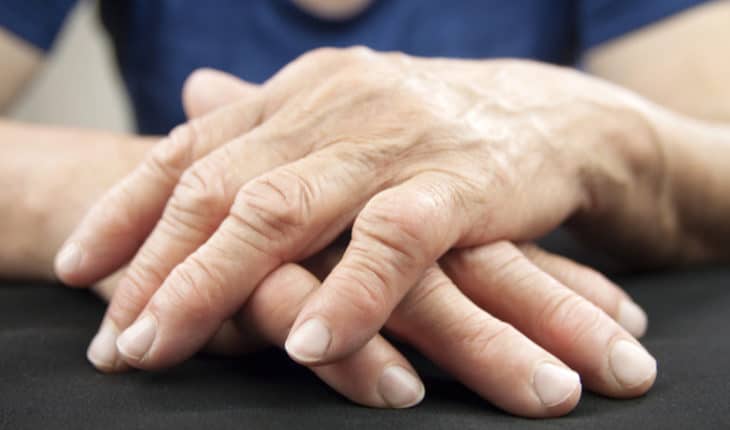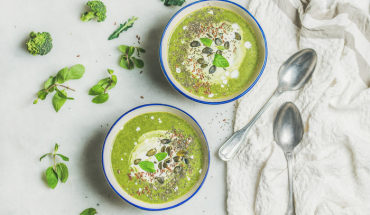This week marks Rheumatoid Arthritis Awareness Week, a week dedicated to increasing the profile of a frequently misunderstood disease that affects over 430,000 people in the UK.
It is a common misconception that arthritis is simply a condition of the elderly, a consequence of age and subsequent wear and tear of the joints. However, Rheumatoid arthritis (RA) affects about 1% of the population and can affect people of any age. In fact, around three quarters of people with RA are of working age when they’re first diagnosed.
RA is a painful and debilitating auto-immune disease which occurs when the immune system attacks the joints, causing swelling and damage to cartilage and bone. Symptoms can have a profound impact on quality of life, including chronic joint pain, inflammation, stiffness, reduced mobility, joint function and chronic fatigue. The condition is three times more prevalent in women than men, with onset most common between the ages of 40 and 60.
Severe disability and permanent joint damage can result from RA if not successfully treated. Identifying symptoms early on means patients can manage the disease effectively and prevent further damage. The usual drugs used for treating the inflammation of RA are non-steroidal anti-inflammatory drugs (NSAIDs), disease modifying drugs and corticosteroids. However, many of these treatments are associated with unpleasant side effects – such as increased blood pressure, stomach ulcers and bleeding – particularly if used over a prolonged period.
However, there are alternative natural treatments available to help patients to manage inflammation safely and effectively. Experts believe that a key ingredient derived from rose-hips could help to reduce pain and tenderness in joints, without the risk of side effects. In a double-blind randomised controlled trial, 89 patients with RA received supplementation of the active compound, known as GOPO®, or placebo for a 6-month period. During the trial, symptoms were shown to improve by about 30% amongst those taking GOPO®, including a reduction in joint tenderness and an increase in activity levels.
According to consultant rheumatologist Dr Rod Hughes,
“Rose-hip extracts have a long history of medicinal use and their potential benefits in the treatment of OA and RA have relatively recently come to light. The most consistent and robust research has been undertaken on extracts from a specific species of rose-hip called Rosa canina, which has been found to contain a potent anti-inflammatory ingredient called galactolipid (or GOPO® for short). GOPO® has been investigated in a number of well-designed studies conducted in Scandinavia and Germany involving people with either OA or RA. These studies found that GOPO® can rapidly reduce joint pain, stiffness and swelling, improve joint mobility and reduce the need for standard painkillers.”
GOPO® is considered by many to be a safer and effective alternative to paracetamol and other prescription medications and could be a first-line treatment option for joint health patients. In one study, 8 out of 10 patients reported a significant reduction in pain after just 3 weeks of GOPO®.
Rebecca, a 38 year old mother of three from Kent, has experienced daily joint pain for the past 26 years since she was diagnosed with juvenile rheumatoid arthritis in her hip aged just 10.
Rebecca says;
“She says; ‘I’ve taken medication of various sorts since my diagnosis, but don’t like relying on regular painkillers because of the damage they can do long term. I have tried many joint pain supplements previously with no noticeable effect so was very sceptical that anything other than painkillers would ever help me. However, I’ve recently discovered something called GOPO® – a clinically-proven rose-hip extract with natural anti-inflammatory properties – and I’ve noticed a real change since I began taking it.”
“When my back seizes up, I cannot even do simple tasks like get dressed unaided, carry my children or prepare meals. Since starting to take GOPO®, I still have bad days, but they have been significantly more short-lived and far less severe. After nearly 3 decades of pain, it’s been incredible. We’ve recently had a two week family holiday, which is wonderful as so many past holidays have had to be cut short due to the pain of my arthritis. I’m so relieved to have found something I know I can rely on long-term without the risk of damaging my health.”
- Combination of drugs could prevent thousands of heart attacks - 21st April 2025
- UQ Study Links Poor Teen Diets to Heavy Social Media Use - 21st April 2025
- Gut microbiome could delay onset of type 1 diabetes - 3rd April 2025






